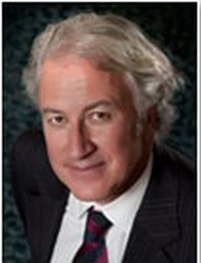Tips from Mediators
One of the most difficult moments in a mediation arises when the parties have expressed their positions. It is time to discuss settlement. Dependent upon liability, the case may involve a fixed sum, general damages or a number of damages calculation options. Who makes the first offer? When should that offer start to bridge the gap between the amount claimed and zero?
Percy Ostroff
|
Even mediations of purely commercial disputes are often not only about the money. How the issue of who makes the first offer is addressed by the parties is often an accurate measure of how the mediation will generally go. When each party insists at the outset that the other make the first offer, a lot of work will likely have to be done before they are ready to start negotiating the substantive issues.
Offers communicate many things to the parties, not all of which are intended. |
When an offer is seen as inappropriately low or high, the party making it is likely to be perceived as unrealistic, overconfident or insulting. The knee-jerk response is for the recipient to want to strike back with a similarly exaggerated counter offer. This is rarely helpful in bringing the parties closer to settlement.
If the parties have no strong views about who starts the process, I encourage the party who received the most recent offer to make the first (counter) offer in the mediation. If no offers were made before the mediation, I usually encourage the plaintiff to make the first offer. This is all subject to the particular dynamics of each mediation. There is no hard and fast rule that will be appropriate for all mediations, and skilled mediators and counsels will tailor their approaches to the needs and interests of the parties in each specific case.
If the parties have no strong views about who starts the process, I encourage the party who received the most recent offer to make the first (counter) offer in the mediation. If no offers were made before the mediation, I usually encourage the plaintiff to make the first offer. This is all subject to the particular dynamics of each mediation. There is no hard and fast rule that will be appropriate for all mediations, and skilled mediators and counsels will tailor their approaches to the needs and interests of the parties in each specific case.
Steven C. Gaon, B.A., J.D., C. Med.
|
Negotiations are at the heart of any mediation – whether the matter involves interpersonal issues or a monetary dispute. Who makes the 1st offer? When dealing with a financial negotiation, in a typical case, a plaintiff will make the 1st offer. However there are exceptions that could necessitate a mediator seeking a 1st offer from a defendant. Some examples may include cases in which:
|
- The plaintiff’s mediation brief already contains a comprehensive offer, setting out amounts that are clearly below the ‘homerun’ numbers set out in the Statement of Claim.
- The parties have already exchanged meaningful offers and counteroffers before the mediation and it’s the defendant’s “turn”.
- It is clear that there will be an insurance “limits” problem, for example, where there is a $1 million motor vehicle policy limit, with multiple plaintiffs who need to “divide the pie” and share the $1 million on a pro rata basis. In those cases, I will often caucus with the defendant first, as the Defendant’s adjuster and counsel will often want to make the 1st offer, and let the plaintiffs respond the way they see fit.
- A defendant or group of defendants has/have determined that a plaintiff’s anticipated 1st offer will likely be unrealistically high. In these circumstances, a defendant may want to ‘set the temperature’ in the negotiations at the outset, in order to telegraph to the plaintiff and plaintiff’s counsel the monetary range they believe to be realistic.
In regard to the question of when, during the negotiations, the gap needs to start being bridged between the homerun and zero, I always say that mediations are an organic process. A good mediator needs to let the parities negotiate and allow the gap to narrow through the negotiation process. Having said that, the mediator is in a great position to determine whether an offer is way too high or way too low. A mediator can help guide the negotiations by persuading parties to be more modest in their expectations and reasonable in their approach. This can dramatically narrow the gap and help expedite a deal being made.
Joy Noonan, LL. B., LL. M.(ADR), C. Med.
|
In most cases, the parties are able to agree on who will make the first offer.
As the party who initiated the court proceedings, generally, the plaintiff will advance the first offer. However, in some cases, the defendant will put forward the first settlement proposal. For example, if the plaintiff has made an offer to settle prior to the mediation, it is customary for the defendant to start the exchange of offers at the mediation. Most parties do not want to make two offers in a row, because they view this as bidding against themselves. Also, some defendants like to make the first offer of settlement, because they feel it gives them the ability to set the tone or direction for the process of exchanging offers in the mediation. |
Regardless of who makes the first offer, it is important that an offer be reasonable. Often, the first round of offers and counter-offers ends up being a waste of time, if either party does not put forward an offer that is seen by the other as genuine. An offer that shows little or no concession can anger or upset an opponent and usually results in an equally unreasonable offer in response.
In my experience, competent counsel try to avoid wasting rounds of offers by making an offer that acknowledges that there are strengths and weaknesses in their opponent’s position. I can honestly say that I have never seen a party accept a ridiculous first offer but I have often witnessed a ridiculous offer create anger in the receiving party.
Good lawyers are aware of the value of their cases and have prepared their clients accordingly. A good lawyer will not waste time or energy at a mediation on a fight about who should make the first offer, or on offers that are unreasonable.
In my experience, competent counsel try to avoid wasting rounds of offers by making an offer that acknowledges that there are strengths and weaknesses in their opponent’s position. I can honestly say that I have never seen a party accept a ridiculous first offer but I have often witnessed a ridiculous offer create anger in the receiving party.
Good lawyers are aware of the value of their cases and have prepared their clients accordingly. A good lawyer will not waste time or energy at a mediation on a fight about who should make the first offer, or on offers that are unreasonable.
Rick Brooks
|
It is always difficult to decide which room to start in, once the parties caucus. If there is an outstanding offer that has been disclosed in the mediation materials, I will usually start with the other party. If no offers have been exchanged, I usually start with the plaintiff. Unfortunately some plaintiffs take the position that their first offer is the amount contained in their statement of claim and they view any departure from that number as being a situation of “bidding against themselves.
|
In my view, this is a problematic way to start a mediation. If the parties are truly attending the mediation in the hopes of reaching a resolution, an opening position such as this is counterproductive. When this occurs, I try to lead the plaintiff towards making an offer that actually communicates a willingness to move towards a resolution.
Each mediation evolves in its own fashion. In some cases, the offers start to bridge the gap quite quickly. In other cases, various offers are exchanged that barely move the parties any closer. It is only after these initial offers are exchanged that real movement takes place.
As always, well prepared counsel will have already assessed the strength of their case and will have prepared their clients for negotiations in a realistic range.
Each mediation evolves in its own fashion. In some cases, the offers start to bridge the gap quite quickly. In other cases, various offers are exchanged that barely move the parties any closer. It is only after these initial offers are exchanged that real movement takes place.
As always, well prepared counsel will have already assessed the strength of their case and will have prepared their clients for negotiations in a realistic range.




